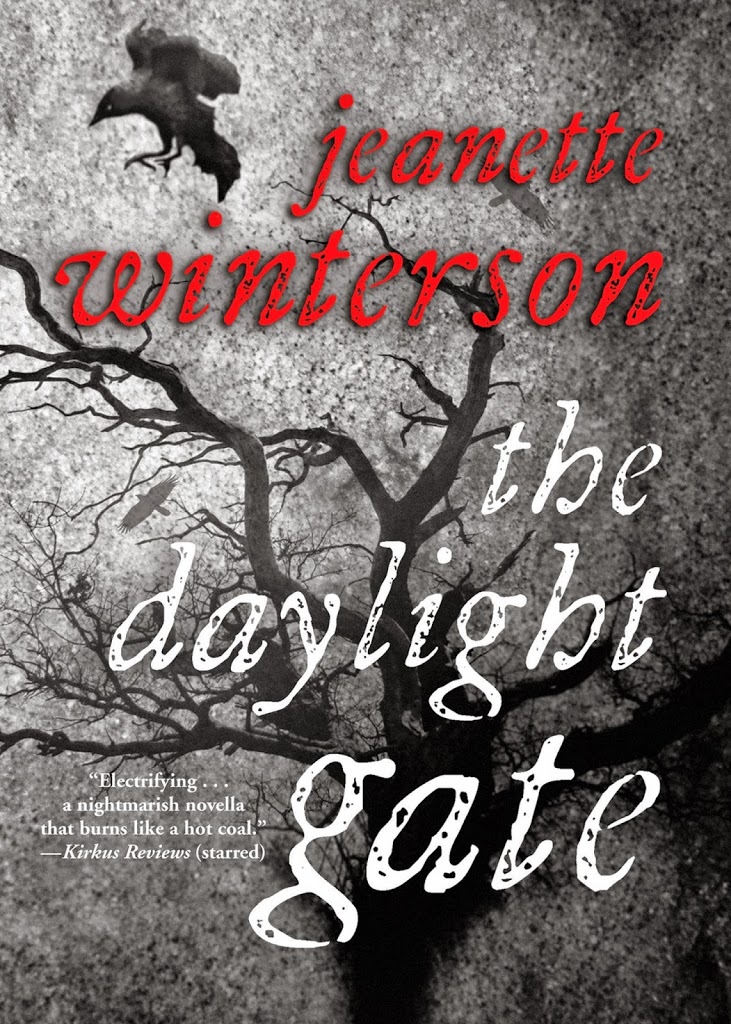Review #7 The Daylight Gate by Jeannette Winterson

This is a brief book, slender even, and much the better for it. Winterson excels in revealing tiny detail and huge panorama in similarly incisive prose and in this novel, almost a novella, she manages to delineate the horrors of a country in the grip of a despot with an obsession as clearly and sparingly as she controls tight revelations of what child abuse looked like in Shakespeare’s poverty-stricken England.
The Daylight Gate of the title could be many things: the period between dusk and night, the moment of decision between right and wrong, the glance into an ‘alchemical mirror’ (a mercury glass, the result of experimentation rather than Satanism) or even the choice of rationality over superstition. In this witch-fearing, Catholic-hating land, rich women, old crones and grouchy neighbours are all equally likely to be charged with witchery and once the net is thrown, it catches many who simply don’t look or sound like everybody else: the unfortunate, the unlikely and those too slow to save themselves.
Alice Nutter is rich, powerful and idiosyncratic. An older woman who looks young, acts masculine and thinks for herself, the question isn’t so much why she is arrested but how she managed to escape scrutiny for so long. As a historical personage Nutter is interesting, as a character, Winterson makes her demanding on many levels. She is as mercurial as her mirror, bisexual, decidedly forthright and yet given to impulsive behaviour based on loyalty. Her love affairs are believable and unequal – there is nothing balanced about her passions, one for a woman who dominates and betrays her, the other for a man who adores her, is crippled by torture and returns to her, only to escape, and then return again when she is convicted of Devil worship. Nutter existed, and Winterson’s imaginative excursion into what might have driven such a woman, in such a period, is both convincing and compelling.
The novel itself is taut with sexual tension – jealousy, rape, mutual passion, seduction and fear of sex all wind through the novel like serpents, coiling around the characters and strangling their freedom of action so they are driven by their lusts, their fears and their desire to live up to their personal ideals of love. Like the alchemy that makes Alice Nutter’s mirror and the dye that earned her a fortune, the aspects of sex can be twisted to look like what they are not. In a place and time where nobody is safe from whispers of Catholicism, which was but a single step from Satanism, any strong passion could lead to inquisition, condemnation and death.
Much of the language is emblematic rather than realistic, as is often the case with Winterson’s work, and in this tight narrative her prose works well to pinpoint and highlight the madness of the age. Like Holbein miniatures, the detail makes the whole, and the detail, whether of flying a falcon, a child’s rape, or a Black Mass is very finely drawn indeed.



Recent Comments